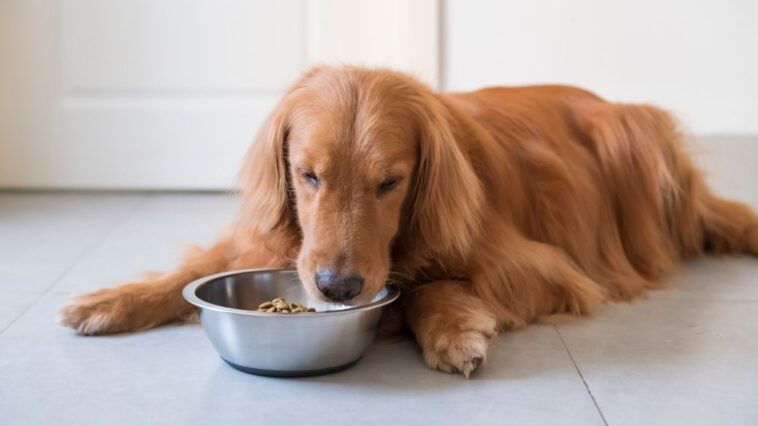As a dog owner, you want to ensure that your furry friend gets the best nutrition possible. However, when it comes to sharing human food with dogs, not everything is as straightforward as it seems. One question that often arises is, “Can dogs eat potato skins?” This topic can be confusing, with some sources claiming potato skins are harmful while others suggest they can be safe in moderation. In this SEO-optimized post, we’ll delve into the details to help you make an informed decision about feeding potato skins to your dog.
Can Dogs Eat Potato Skins?
Dogs can eat potatoes, but they should handle the skins carefully. While the flesh of potatoes is generally safe for dogs when cooked properly, the skin can be a bit more problematic. Potato skins contain solanine, a natural toxin that can be harmful to dogs, especially if consumed in large quantities.
Solanine in Potato Skins:
Solanine is a glycoalkaloid found in the nightshade family, which includes potatoes. While small amounts of solanine are unlikely to cause serious harm, it’s best to avoid giving your dog potato skin to reduce the risk. Additionally, the texture of potato skins can pose a choking hazard or cause digestive issues, particularly if they are tough or not cooked thoroughly.
Always peel potatoes before feeding them to your dog, and make sure to cook them without adding any seasonings. Boiling or baking potatoes is an ideal method, as it softens the flesh and makes it easier for your dog to digest.
Nutritional Value of Potato Skins
Potato skins are often touted for their nutritional benefits in humans, but what about for dogs? Potato skins do contain fiber, vitamin C, and potassium, all of which are beneficial to health. However, when it comes to dogs, the risks associated with solanine and the potential for digestive issues generally outweigh these benefits.
Are potato skins nutritious for dogs?
While potato skins can offer some nutrients, they are not a necessary part of a dog’s diet and should not replace a balanced, species-appropriate diet. The fiber in potato skins may aid in digestion, but too much can lead to gastrointestinal upset. Other more suitable dog foods already contain vitamin C and potassium.
While potato skins do have some nutritional value, they are not an essential or particularly beneficial food for dogs. It’s better to stick to safer, more dog-friendly treats.
How to Prepare Potato Skins for Dogs
If you still choose to feed your dog potato skins, preparation is key to ensuring they are safe. Here’s how you can prepare potato skins for your dog:
- Wash Thoroughly: Begin by thoroughly washing the potatoes to remove dirt, debris, and any potential pesticides from the skin.
- Cook the Potatoes: Always cook potato skins before offering them to your dog. Boiling, baking, or steaming them until fully cooked is ideal. Avoid adding oils, butter, or any seasonings, as these can be harmful to dogs.
- Cool and Serve in Small Quantities: After cooking, allow the potato skins to cool completely. Cut them into small, manageable pieces to reduce the risk of choking or digestive issues. Serve them in moderation, as an occasional treat.
- Whenever you introduce a new food into your dog’s diet, closely monitor them for any signs of digestive upset, such as vomiting, diarrhea, or lethargy. If you notice any adverse reactions, stop feeding potato skins and consult your veterinarian.
Other Human Foods That Dogs Can or Cannot Eat
Dogs have different dietary needs and tolerances than humans, so not all human foods are safe for them. Here are some common foods that dogs can or cannot eat:
Safe Foods for Dogs (in moderation):
Lean Meats: cooked chicken, turkey, and lean beef without bones or seasoning.
Plain cooked eggs: when fully cooked and without added ingredients.
Plain Rice and Pasta: As long as they are unseasoned.
Fruits: apples (without seeds), bananas, and blueberries are safe in moderation.
Vegetables: Carrots, green beans, and sweet potatoes are excellent choices when cooked.
Foods to Avoid:
Chocolate contains theobromine, which is toxic to dogs.
Garlic and onions can damage red blood cells and cause anemia.
Grapes and raisins have been shown to cause kidney failure in dogs.
Avocados contain persin, which can lead to digestive issues or more severe health problems.
Alcohol: Even small amounts can be extremely dangerous to dogs.
Always introduce new foods gradually and consult with your veterinarian if you’re unsure about what’s safe for your dog.
Signs of Potato Skin Poisoning in Dogs
If your dog consumes too much potato skin, they may experience symptoms of solanine poisoning. Signs to watch for include:
- Vomiting
- Diarrhea
- Abdominal Pain
- Lethargy
- Seizures (in severe cases)
If you suspect your dog has ingested a large amount of potato skin or is showing any of these symptoms, it’s important to contact your veterinarian immediately. Prompt treatment is essential to prevent serious health complications.
What to Do if Your Dog Consumes Too Much Potato Skin
If your dog accidentally eats too much potato skin, here’s what you should do:
- Assess the situation: Estimate how much potato skin your dog has eaten and monitor for any immediate symptoms.
- Contact your veterinarian: If your dog has consumed a significant amount or shows any signs of distress, reach out to your veterinarian right away.
- Monitor Symptoms: Keep an eye on your dog for any signs of discomfort, vomiting, or diarrhea. If symptoms worsen, seek veterinary care immediately.
- Follow Veterinary Advice: Depending on the situation, your vet may advise inducing vomiting, administering activated charcoal, or bringing your dog in for an examination.
Keep potato skins and other potentially harmful foods out of your dog’s reach because prevention is always better than cure.
Conclusion
Dogs can safely consume potato skins in moderation when prepared properly, but there are risks involved. Solanine’s presence and potential for digestive issues necessitate caution. As with any human food, it’s important to consult with your veterinarian before introducing potato skins or any new food into your dog’s diet. By being informed and careful, you can help ensure your dog’s diet is both safe and nutritious.




